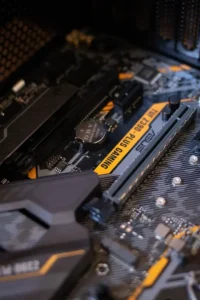According to The Economic Times, over 40,000 semiconductor jobs will be available in India in 2024, a 25-30% increase compared to the previous year. Demand for semiconductor jobs has persisted for quite some time. Today, many tech giants seek to develop their own semiconductor chips. From chip design to testing, professionals with diverse backgrounds are required, including digital design, VLSI design, ASIC design, RTL design, and DFT engineering. This blog will focus on RTL Design engineers, who are pivotal to digital design. These engineers primarily work with virtual simulators to conceptualize and design the input and output flow of data through registers.
Now those who are excited to land this exciting job, one must have a solid understanding of digital design fundamentals, RTL coding, and verification methodologies.. To ace the interview, a solid understanding of digital design fundamentals, RTL coding, and verification methodologies is crucial. This blog will delve into common RTL Design Engineer interview questions, covering a wide range of topics to help you prepare effectively and ace the interviews.
To enhance your knowledge and skills, consider enrolling in a VLSI course. These courses provide a complete understanding of Very Large Scale Integration (VLSI) concepts, essential for aspiring RTL Design Engineers.
Frequently Asked RTL Design Engineer Interview Questions
Logic Gates/ Flip Flops
- Explain the difference between combinational and sequential logic.
- What are the different types of flip-flops and latches?
- How do you implement a finite state machine (FSM)?
- Describe the design process for a simple ALU.
- Discuss various logic gates and their truth tables.
Verilog/VHDL
- Differentiate between Verilog and VHDL.
- Explain various data types in Verilog/VHDL.
- How do you model different types of memories (ROM, RAM, FIFO)?
- What are the different types of modeling styles (behavioral, structural, dataflow)?
- Discuss the concept of blocking and non-blocking assignments.
Synthesis and Timing
- Explain the synthesis process.
- What are the key factors affecting synthesis results?
- Describe different types of timing constraints.
- How do you handle clock domain crossing (CDC)?
- Discuss low-power design techniques.
Verification
- Explain different verification methodologies (simulation, formal verification, emulation).
- What is testbench architecture?
- How do you write test plans and generate test cases?
- Discuss code coverage metrics.
- What are assertions and their importance?
Design and Architecture
- Describe your experience with design methodologies (top-down, bottom-up).
- Explain the concept of pipelining.
- How do you optimize a design for area and performance?
- Discuss different design styles (synchronous, asynchronous).
- Explain the concept of microarchitecture.
How To Succeed in the RTL Design Engineering Interview
- Practice Coding: Write code for different design problems to improve your coding efficiency and accuracy.
- Understand the Basics: Reinforce your understanding of digital design fundamentals.
- Learn Verification: Gain knowledge of verification methodologies and tools.
- Stay Updated: Keep yourself updated with the latest industry trends and technologies.
- Showcase Projects: Be prepared to discuss your previous projects and contributions.
- Communicate Effectively: Clearly articulate your thoughts and ideas.
Some Additional Tips for the Interview
- Behavioral Questions: Prepare for behavioral questions about teamwork, problem-solving, and handling challenges.
- Mock Interviews: Practice with friends or mentors to improve your interview skills.
- Research the Company: Learn about the company’s products and culture.
Conclusion
Cracking an RTL Design Engineer interview requires a combination of technical knowledge and soft skills. By focusing on the areas mentioned above and following the tips provided, you can increase your chances of success. Good luck!
To delve deeper into the intricacies of VLSI design, consider pursuing a VLSI design course. This specialized training will equip you with advanced knowledge and practical skills required for a successful career in the industry.
For those seeking flexibility in learning, a VLSI online course offers a convenient way to acquire VLSI expertise. These courses provide self-paced learning, allowing you to balance your studies with other commitments.














